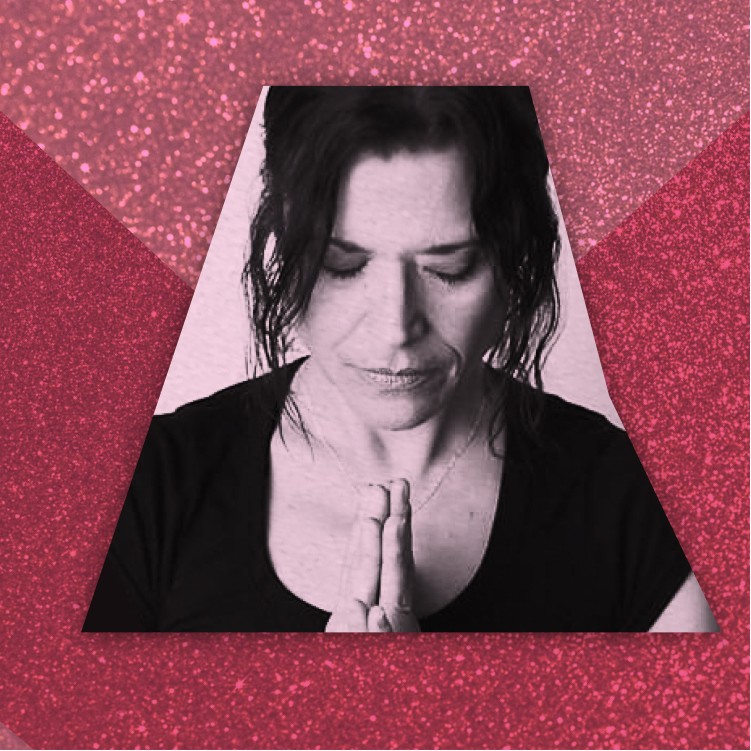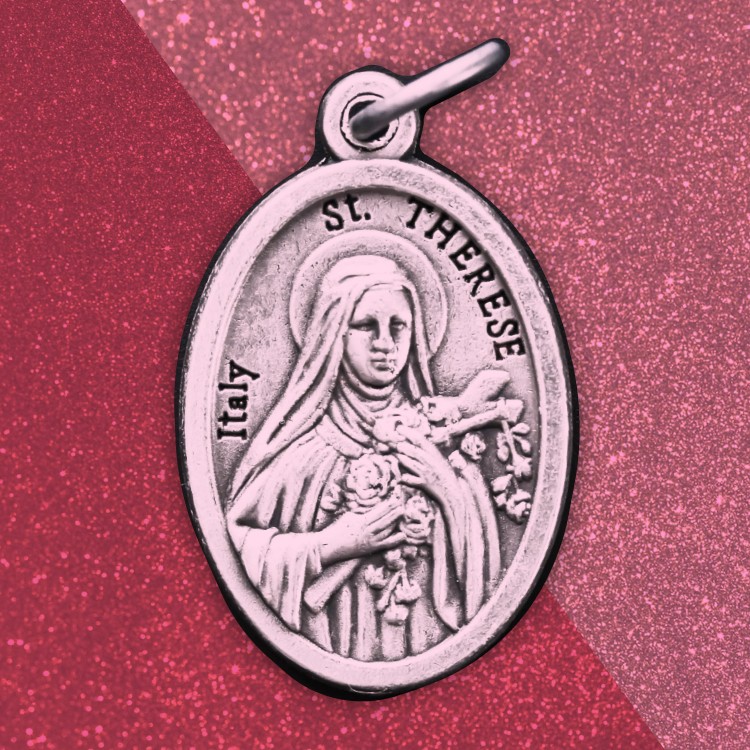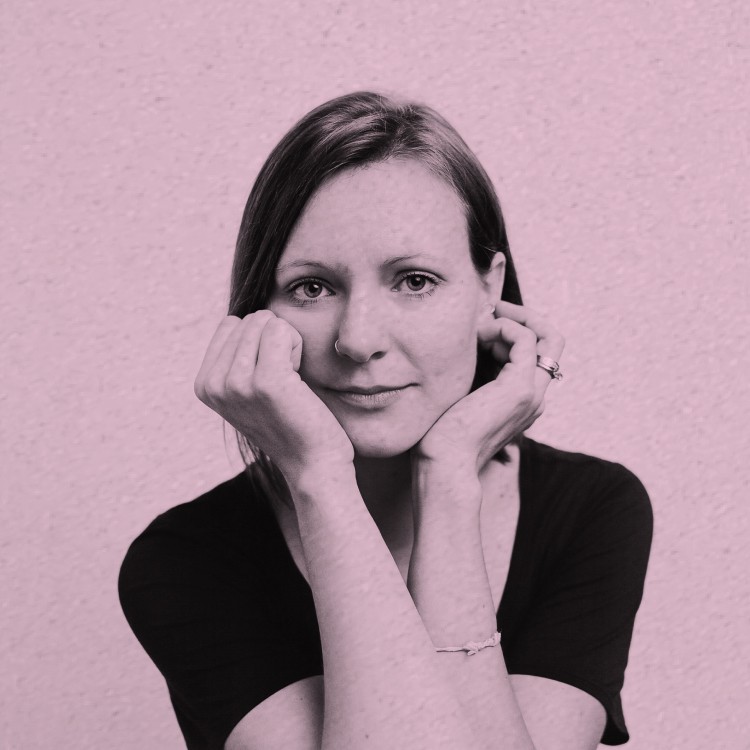Father
Simon recounts his earlier calling to the priesthood. Alana sneaks out to church, and meets a controversial priest who advises her on becoming a nun.
Part 2 • 31:28
Dear Alana, is available free on all platforms and as an exclusive ad-free binge for Tenderfoot+ subscribers. To sign up or learn more, visit Tenderfootplus.com.
Transcript
The following episode contains references to suicide. If you or someone you know is in need of help, please contact the Suicide and Crisis Lifeline by dialing 988. Listener discretion is advised.
SIMON (CHILD): “Once upon a time, there lived a little mermaid named Ariel.”
SIMON’S SISTER (CHILD): “Out of the sea, wish I could be, part of that world…”
SIMON KENT FUNG: I grew up around girls. I have a sister, Margaret, and my closest friends were my female cousins, Sharon and Vivian. We’d chase each other around the house, shrieking, play Nintendo incessantly, and, as you heard, re-enact “The Little Mermaid.” I was obsessed with this movie. I’m like, six or seven, it’s the first film I’ve ever seen in theaters, and I’m riveted by this redheaded mermaid.
And I also know that that's not something I should be proud of. Not because anyone sits me down to tell me that, but I just pick up that like most other boys my age are not singing to “The Little Mermaid.” They're outside playing baseball, soccer, hockey (I grew up in Toronto in the eighties and nineties). And as a Chinese immigrant family, we didn't have access to, say, hockey—it's a really expensive sport. So at recess, I have no idea how to play what the boys are playing. And I play with the girls. But after a while that just created more bullying from the boys. They’d kick balls at me and would laugh when I ducked out of the way.
One of my earliest memories is me on the schoolyard during recess and it's winter. My recess activity in frigid Canada is cracking the ice puddles, waiting desperately for the bell to ring. I'm feeling so, so lonely. Everyone else is off playing together—skipping rope or playing ball hockey. And it seems like the only friend I can talk to, as I'm poking the ice with my boot, is God. God is the only one who understands me. The only one who cares, who sticks around. And this is such a deep memory because it cemented in me who God was, and helped me survive.
From Tenderfoot TV, I'm Simon Kent Fung. This is Dear Alana.
Part Two. Father.
JOYCE: Oh my God. I can’t understand, like…
SIMON KENT FUNG: I’m with Joyce, Alana’s mother, who has so many unanswered questions about Alana’s suicide.
JOYCE: Was it at 13 that she started suffering? Did you have that?
SIMON: I was severely depressed and had suicidal ideation probably at the age of…nine? You know?
JOYCE: Because you thought you were gay?
SIMON: No, it was because I was bullied a lot. And I never felt like I belonged. I just remember we moved to a new neighborhood and I started a new school. And you know, this was in 3rd grade. The first day they make you do an “All About Me” thing. And I remember even at that age, I must have been, what, 8 years old? My “All About Me” was like, what are people going to think about me? What is the most acceptable hobby? ‘Cause anything that I would have liked I would have been made fun of. You know? So I remember writing like “baseball,” and I really liked watching Disney movies and like things like this…
JOYCE: Kids are so mean. Is that how you found God after that?
SIMON: Yeah. I remember being really depressed. My parents didn’t know this. But I would sleep a lot. That’s how I experienced it initially. And I remember finding quotes from the Bible and really just—there was one passage from St. Paul and he talks about, “When I’m weak then I am strong, and when I am small then I am big.” And remember just feeling like God is the only thing in my life, that understands and will care and…
JOYCE: So you found it on your own.
SIMON: Yeah… yeah…
SIMON KENT FUNG: Alana got really into church on her own too. But I’m still not sure why she was drawn to it at such an early age. I don’t get the sense that she was bullied like me as a kid. In fact, Joyce tells me that Alana had many friends. And it doesn’t take long until she introduces me to Joy (not Joyce, but Joy), one of Alana’s oldest friends.
JOY: So Alana and I met on the first day of kindergarten. We went to Fireside Elementary. So yeah, I've known her my whole life, it feels like.
SIMON KENT FUNG: It’s windy on this bright, fall day, and Joy is dressed in layers, with her blonde hair in a bun. We meet at Davidson Mesa, one of their favorite places to hike. I can see the appeal. It's a huge open area with wide views of the Rocky Mountains, a paved, looped trail. It's a great place to clear your head or have a conversation with a friend.
JOY: We would go at night a lot or at sunset. She shared a lot of different—, we shared a lot of different things with each other on those walks.
So Alana had this big tattoo on her rib cage of Jesus on the cross. And like, when we were walking here was the first time she showed it to me. And she like hadn't told her parents.
SIMON KENT FUNG: I ask her what her earliest memories of Alana were.
JOY: She was so much fun. So playful, and curious, and kind. We loved to like have sleepovers and we made all these videos of ourselves giggling and like jumping on the trampoline. She had, you know, sisters. So I only had brothers. They had all these clothes at their house, all these girls clothes. We would dress up and Carissa would dress us up and do our makeup. She made me look like Shirley Temple, one time.
SIMON KENT FUNG: Alana and Joy have a scrapbook that they created. And they had this tradition of passing the book back and forth on big occasions like birthdays, and taking turns writing a new entry, adding a new picture or memory to the pages. Joy brought the book with her, and she opens up the front cover.
JOY: She says, “Well, I don't actually remember the day we met, so bye. Just kidding. But seriously, I don't remember. But it happened probably the first day of kindergarten. It must have been fate that we met that day since we're still friends today. I guess this doesn't count as a memory, but it was still a very important date and I'm glad it happened.”
SIMON KENT FUNG: She turns the page past a photo of a maybe six-year-old Alana looking wistfully next to Joy, who’s mugging to the camera.
JOY: This is a classic story. She tried to comfort me and then I gave her the flu.
SIMON: And she's drawing these little drawings under each one, huh?
JOY: Yeah. So there's this, this stick figure on this one says, “Cough.” And then hers says, “Don't worry. You'll get better.” There was a day I told her my crush.
SIMON KENT FUNG: The scrapbook is thick and we see Alana and Joy through the years becoming teenagers.
JOY: When someone would have a breakup, she would, you know, be all in. We played this game called—we called it the “He's a Loser” game. And everyone would just say things about this ex. And then we'd say, “He's a loser!” It's really immature, nonproductive. But you know, she wasn't above any of it.
SIMON KENT FUNG: We turn the page to a picture of Alana in a sports uniform.
JOY: So a big part of high school, I think is, um, Frisbee.
SIMON KENT FUNG: She's referring to ultimate Frisbee, a high intensity sport where players have to get a frisbee to an end zone, while trying not to get intercepted along the way. The high school ultimate Frisbee team becomes one of Alana’s core group of friends. This is Nhi, the frisbee team captain.
NHI: For me, ultimate has always been a space where like people can do whatever they want. They can really be themselves.
SIMON KENT FUNG: It was Nhi’s passion for ultimate Frisbee that recruited Alana, and many others, from their high school. And one song in particular, really sums up their team.
[Music clip: “Gas Pedal,” by Sage the Gemini]
NHI: Gas Pedal is a popular radio song from like the mid-2000s, I would say. For some reason, someone on our team wanted to turn that song into “Ass Paddle.” You know, we would form a circle, as we would, like a huddle and someone outside of the circle would have a frisbee in their hand. And we would bend forward with our behind sticking out. And someone would go around and just like hit all of our butts. Everyone in the middle would be like screaming, “Ass paddle!” like really loud. That was one of the ones that made Alana feel super uncomfortable. So she ended up with a nickname that year was “Alana-I-Don't-Participate-Chen,” which was really funny. Like there's like pictures and other footage of her just like standing as still as possible during one of the cheers that made her uncomfortable. And like, that was one of the defining moments of Alana.
SIMON KENT FUNG: I’m kind of jealous of Alana’s friend group. I always wished I had a group of friends to joke around and do sleepovers with. Instead, my loneliness continued throughout high school, where I put all my energy into getting good grades. Alana seems to have it all: a best friend, sports, community.
Around this time, if you remember, Alana was fresh from her Catholic summer camp experience, the one that really made an impression on her. I asked Nhi if she remembers if Alana's newfound religious devotion stood out.
NHI: I first started to pick up on how religious Alana was when we went to travel tournaments. That was senior year of high school. So that was the first time our team was able to start traveling to tournaments to compete. And I had noticed this because she would, you know, wake up super early on like Sundays of a tournament and find a way to get to a church in the morning. And she might have been doing that with one other teammate, but for the most part it just felt like she was doing that on her own because she chose to do it.
SIMON KENT FUNG: Most kids (and adults) have to be forced to go to church. But Alana’s choosing to go on her own, by herself. I wonder what she’s finding there that she isn’t getting from her friends or her family.
JOY: So Alana was like sneaking out to go to church. I think at one point she asked my mom to drive her. And my mom was like, “Wait, why?” You know, like she kind of caught on too of like, “I don't wanna be sneaky here.” But at the same time it was like, “But she's going to church. So, it's probably not a big deal.”
SIMON KENT FUNG: It would happen like this. Every day after school, Alana would tell her parents she was going to Joy’s to study and then either have Joy's mom drive her or take the 30-minute bus ride to St. Thomas Aquinas church, St. Tom’s, the Catholic parish that sits in the middle of the University of Colorado Boulder campus. Not a small trek.
It's funny to imagine a young girl sneaking out to go to church, but I can totally relate. I also went to daily Mass (on the down-low), and for me it started after I met someone at church. Gosh, I haven’t thought about him in a long time. His name was Fr. William. And he introduced me to a more serious practice of Catholicism. In my late teens, I met Fr. William, when he came to say Mass at my college Catholic center. He was short and trim, had silver hair, a twinkle in his eye, and perfect teeth. He walked around campus in his tailored black cassock and white collar, like someone out of a 1940s Hollywood set. But the most striking thing about him was the way he said Mass.
PRIEST: At the time He was betrayed and entered willingly into His passion…
SIMON KENT FUNG: Fr. William would say each word deliberately,
PRIEST: Take this, all of you…
SIMON KENT FUNG: bow and raise his arms with careful precision,
PRIEST: For this is My body, which will be given up for you.
SIMON KENT FUNG: and pause with dramatic flare as he held up the bread. I was riveted. Compared to the priests I saw every Sunday, growing up, Fr. William was not going through the motions. He meant every word of every prayer.
One day Fr. William came up to me and asked me if I'd ever considered the priesthood. That is, if I'd ever thought of becoming a priest. The thought had crossed my mind as it does for many pious Catholic boys. But something about the way he asked me, the way he looked me in the eye, made me feel special, chosen. I shyly said, “Yeah.” And he told me that if I was interested, we could meet to talk about that. I said, I'd think about it. And for the next few weeks, I returned to Mass, excited to see Fr. William and hoping that he'd come and talk to me again. He did, and that year, he became my spiritual father and spiritual director, meeting regularly with me to talk about what it would take to become a priest. For Alana, all this sneaking out to church was beginning to get to her.
Joyce tells me about one morning when Alana came into her room and woke her up. She was in tears and wanted to talk.
JOYCE: So, she came into my room, I was half asleep, so it was early morning. And I remember—I was like, well, at first my first thought was she was gonna tell me something bad. Like what I did when I was teenagers, like drinking at 14.
SIMON KENT FUNG: But Alana had something else to confess.
JOYCE: She came in my room crying that she'd been lying to me, that she'd been taking the bus, saying she was at Joy’s, but every night about five o'clock (so it was a 5:30pm Mass), but she was taking the bus to St Tom's, which is on the Hill, which is like college students, partying, some bad stuff happens there.
SIMON KENT FUNG: She’s glad that at least Alana hadn't been sneaking out to party.
JOYCE: A part of me was relieved, but then I said, “Wait, that's not good for you to go. It's dangerous.” And you know. She was like, “No, I'm sorry. I just, I really wanna go to Mass every day.” And I was like, “Why? Like, every day, what do you…I don't understand this.” And she was like, “No, I just love it. And I wanna go to Mass every day.” And then she said, “I really want you to watch this show that they showed us. Oprah went into a convent.”
SIMON KENT FUNG: Oprah went into a convent. I don't remember seeing this episode when it aired, but the video is pure Oprah production value.
OPRAH: Today, 22 young women will begin their journey toward becoming a nun.
GIRL 1: I graduated from high school back in June. I guess I knew ever since I was really little. Like I never had any doubts that God was calling me.
GIRL 2: I’ve definitely thought about it. And it’s worth thinking about. Being with Jesus the whole time. I mean Jesus 24/7. I mean what better husband?
SIMON KENT FUNG: Oprah cuts to shots of young nuns in their white habits playing ball hockey, riding bikes on the gorgeous green convent acreage. And she interviews this beaming woman who’s left behind a great career to become a nun.
OPRAH: Where were you in your life when you realized you wanted to be married to Jesus Christ?
SISTER: I was sitting on my couch, in my, in my house and I had an apartment on the lake. And I was in front of my TV and I had just finished decorating. And I looked at the stereo and I looked at my whole entertainment center. And I thought, and I said it out loud, I don't, I usually don't talk to myself out loud. I said, “I could give it up all tomorrow and it wouldn't mean a hill of beans.” I came to a point where I said, “Okay, this is it.” And if I know this is it, then I have to do it.
JOYCE: And so she showed me the video, I'm half asleep. They were playing frisbee and they're in their habits. And like she said, “Mom, some of them were nurses and doctors. And then now they're nuns and look how happy they are!” And I just remember going, no, no, no, like inside I was like, no. And she was so young, so I was pretty shocked, you know? And then I just said, “You can't take the bus anymore. If you want, I'll go. I don't think you need to go every day,” you know? And she was upset with me. She was upset with me right away about my lack of enthusiasm and my judgment about the convent.
SIMON KENT FUNG: As funny as nuns playing frisbee might sound, it’s actually a powerful juxtaposition. Growing up, I tended to think of priests and nuns as these alien creatures who took on restrictive spiritual practices in order to be close to God. But discovering that they were real people who had regular jobs and played sports in their free time, made their callings suddenly a lot more accessible. Like maybe, I could do that too.
Alana’s desire to be a nun would be the source of many fights with her mom over church.
JOYCE: So I ran into Joy's mom and she said, “Oh my God, you must be so happy Alana wants to be a nun.” And I was like, “What?” I was like, “What are you talking about?” And I'm not happy, what you're telling me. And I’m like, “Debbie, she’s 13, she’s 14. What are you kidding me?”
SIMON KENT FUNG: Her friend Joy remembers when this happened. How Alana was really mad at her mom for not letting her go to church by herself.
JOY: You know, it's kind of this adolescent, like, “Parents don't get it.” And it was just so confusing for all of us because the limits that they were setting were around church. And for us, it was like, curfew, you know, like spending time with boys. And I just think we didn't get that, you know?
SIMON KENT FUNG: Even still, Joy reflects on how much she looked up to Alana.
JOY: For better or for worse, Alana was always my moral compass. If I made a joke at someone's expense, I would just think like Alana wouldn't do that. She was so kind of rooted in her values and thoughtful. Like looking back, it's actually kind of, you know, I work with kids and teenagers now and knowing what I know about child and adolescent development, it's like remarkable.
SIMON KENT FUNG: It sounds like Alana was a kind of role model for a lot of her friends. I ask Joy if Alana would ever talk about her own struggles.
JOY: We would talk about difficult things in her life. And I don't know if that's ‘cause she asked or ‘cause I would ask. You know, obviously I'm a therapist now and I had I think some of those bents back then. And maybe Alana and I did a little bit of that together, of like we're gonna be stable and supportive for other people and not as much for ourselves. So maybe we influenced each other in that way. But we did certainly talk about stuff going on with her family.
SIMON KENT FUNG: So what was going on with her family? The fact is, even before Alana was born, things between Mike and Joyce weren't going well. I'm with Joyce and she's cleaning up after making me that sandwich.
JOYCE: When Sammy was little. I wound up in the safe house with a 10-month old for a month. And then I got all kinds of services, and then a legal separation.
SIMON KENT FUNG: After a period of separation, Joyce moved back in with Mike.
JOYCE: And then I moved, I wound up going in the house with him. Right after that I had, we had another incident. It just was like this for thirty, like thirty-two years.
SIMON KENT FUNG: As their family grew, things stabilized, relatively speaking. I reached out to Mike, but he didn't answer my calls. I'm sure I don't have the complete picture of their troubles. But needless to say, their marriage was rocky. It strikes me how open Joyce is.
JOYCE: We had like five marriage counselors.
SIMON KENT FUNG: I mean, we've known each other for now, almost two years, and just recently in person. But she doesn't hold anything back. She speaks with this kind of earnest energy. Like she wants me to know everything about her life so that I can better understand Alana’s. Joyce reflects on how her marriage might have impacted Alana.
JOYCE: She wrote, it's in her journal, that she was always scared I was leaving. I know. I think that's why sometimes, Simon, I'm so guilty because there's so many things that…her spirit and soul was, it was scared.
SIMON KENT FUNG: I talked to Alana’s younger sister, Sophia. She remembers this time well, when they were young girls, and Alana wanted to be a nun.
SOPHIA: We definitely were very shocked. I just remember, I was like, that's my sister. I love her. And I'm gonna support her. But it was still odd. I remember they were in my mother's room once and they’re arguing. The conversation was getting pretty heated and my sister was getting upset. So I like stepped in. And I often felt like a big sister to her sometimes. Not because I was more mature because I wasn't, but I was a lot more vocal. And I remember telling my mom, I was like, if this is what she wants to do, this is what she wants to do.
SIMON KENT FUNG: And Sophia begins to notice changes in Alana’s appearance.
SOPHIA: As she got more involved in the Church, she started dulling down her wardrobe. Really conservative skirts, no makeup, really long sleeves. Everything was covered.
SIMON KENT FUNG: She even stopped wearing bathing suits and would go into the water with a t-shirt on. This new image was in stark contrast to her earlier style of neon pink tops, red shoes, and barrettes in her hair.
I've shared how I got interested in becoming a priest. But I wonder how Alana first got the idea to become a nun, as it clearly didn’t come from her upbringing. Was it just the Oprah video? Did the desire come from God himself, a mysterious calling, as we learned in Sunday School? I figured she must have confided in somebody at church at that time. So I reached out to Judy, her middle school youth group leader at St. Tom’s.
JUDY: Alana always had that... It's hard to explain. Just that light of Christ in my mind. She just lit up. Just this radiant being. And I just remember from that point on I just thought, “She is so lucky. You know, she knows God at such a young age.” I mean, I don't know very many girls that want to be a nun. That was unusual.
SIMON KENT FUNG: It was unusual. But as her youth group leader, Judy was secretly rooting for it.
JUDY: And she said her mother didn’t want her to be. And I’m kind of in the middle here going, I love this. I kind of want you to be a nun. But I've gotta respect Joyce. I remember I wanted to be a nun, so maybe that was part of my heart. You know, St. Thérèse was like, what, 14 when she entered the convent. And you know, I just thought, “If that’s where your heart is, follow it. Don’t let anyone tell you, ‘No you can’t do that.’ ‘Cause God’s the most important.” The other side of me said, you know, God’s not going to let go if she really has it. So, I said you know, “Just keep praying and walking that way, and your mom will understand eventually if this is what you really want to do.”
SIMON KENT FUNG: Back at the apartment, Joyce shows me the earliest journal she can find.
JOYCE: She left—it was all over in that bin.
SIMON KENT FUNG: It opens with a sort of list of instructions that Alana wrote to herself.
JOYCE: “Use tape, never glue, stick to this notebook, do not waste space. Keep in mind dates.”
SIMON KENT FUNG: Alana's dense and neat writing packs every line of the spiral ring notebook. True to form, she doesn't waste any inch of space.
JOYCE: “The notebook marks a new beginning. Today is May 1st, 2013. This is the month devoted to the Blessed Virgin Mary. This notebook and all its contents—thoughts, lists, pictures, prayers are devoted to mama Mary, to be handed over completely to Jesus Christ.”
SIMON KENT FUNG: We turn the page to find a sort of spiritual recap.
JOYCE: “I saw a girl who loved Jesus as if he were her husband. I wanted that love. I decided I would follow Jesus from that moment. Until then I did not know nuns still existed. I had many questions. What do they do? What is their purpose? Why doesn't every girl become a nun? How do I know I'm called?"
SIMON KENT FUNG: All very good questions. And then I find my answer.
JOYCE: "That very week, I was at Mass and our new parish priest pulled me aside and asked if I was discerning a religious vocation. He said the Holy Spirit inspired him to offer me spiritual direction. Eventually, I accepted the offer."
SIMON KENT FUNG: It was a new priest in town.
JOYCE: "He taught me to pray the rosary. He taught me a method of mental prayer and to go to confession more often. My parents thought it was weird that all of a sudden I was becoming more religious. When my mom found out that I wanted to be a nun, she was so mad and scared. I told this to my spiritual director, and I began volunteering twice a week at the M.C. Sisters in Denver. Fr. Dave, my spiritual director, helped me to find a lot of time to pray during the school year. Jesus told me to be patient and vigilant that year.”
SIMON KENT FUNG: From the news articles. I remember reading about a priest who had counseled Alana throughout her teens. But this is the first mention I've seen of him by Alana herself. And she takes him as a kind of sign from God: the same week she asks to be shown if she's called to be a nun, this priest, Fr. Dave Nix, appears and asks her exactly that. It reminds me of my Fr. William.
Again, Judy, Alana’s youth group leader.
JUDY: And looking back on it, I just apologized to Joyce a hundred times. But, um, her relationship with Father Nix, ‘cause she was so excited. She goes, “He's my spiritual director!” And I go, what, you know, teenager has a spiritual director? You know, he would call her, he'd talk to her, he'd be with her. And he was trying to help her sort out whether or not she could—she really wanted to be a sister at that point.
But there was so much more going on than I was unaware of.
SIMON KENT FUNG: I’m starting to get a picture of what Alana might have found at church. It was probably a quiet place for her after a rowdy Frisbee game, and a refuge from home when her parents were fighting. And it makes more sense now why her conviction to become a nun was so strong. Alana was being guided and coached by her spiritual father, Father Dave Nix. But what else was going on that Judy wasn't aware of?
In an instant, I see how important Alana's own words and perspective are going to be, if I'm going to find out what happened to her. I can't just rely on her family's observations or a few excerpts. Her journals are the primary sources of her inner life. And she's got nearly two dozen of them.
I fly back to San Francisco. On the plane, I think about Alana and Joyce, Joy and the Frisbee team. What Alana went through in her early years, her sneaking out to go to church, and what she might’ve found there. I wonder if she would’ve related to God the same way I did, as a friend.
I wish that I could talk to her. It’s great to hear the stories from her friends, and I can learn a lot from them. But I realize that Alana’s own journals are the closest thing to Alana that I’m gonna get. Her thoughts. In her own words.
I call Joyce to talk to her about it. She’s very protective of Alana’s journals, and has often said that they contain a lot of private details. She says she doesn’t want to let them out of her sight. I get that.
I decide I’m gonna be direct. So I ask her if I can go through the journals. Page by page. Maybe even photograph them so that I can cross-reference names and dates. I tell her that I need to know what’s in those journals because we need the truth, as Alana saw it, to guide us.
I wait. There’s silence. Joyce asks me if I’ll be careful with them. If I can do this at her apartment. Of course, I say. She’s quiet. And then, she replies. “Ok, let’s do this.”
[Theme: “I Will Follow You,” by Toulouse]
SIMON KENT FUNG: Next time, on Dear Alana.
JOYCE: You're in here with my daughter, a minor. I imagine the door was shut. I don't know. I have no knowledge of this. I didn't give any consent. She’s 14.
SIMON KENT FUNG: Alana is asked to keep a secret that will tear her apart.
Dear Alana was created, hosted, and written by me, Simon Kent Fung, and is a production of Tenderfoot TV in association with Aslept Audio and the Center for Independent Documentary. It was produced by Laurie Polisky, who also composed the music. Executive Producers are myself, Donald Albright and Payne Lindsey. Our Supervising Producer is Tracy Leeds Kaplan. Additional music by Makeup and Vanity Set. Sales and distribution by iHeart Media. Our credit song, “I Will Follow You,” is by Toulouse.
Show notes and resources can be found on our website dearalana.com. If you enjoyed this episode, please take time to follow the show, rate, and review.













